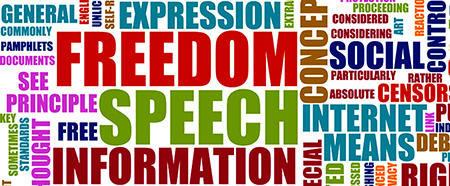
New policies will prevent prisoners from receiving court mailings, newspapers, magazines, books
Could deny constitutionally guaranteed access to courts
Further restricts prisoners’ access to families, outside world

Efren Paredes, Jr.
By Efren Paredes, Jr.
Published August 23, 2017
Today the Michigan Department of Corrections (MDOC) issued a memorandum notifying prisoners and members of the public about new changes being made to the “Prisoner Mail” policy, PD 05.03.118, which should rattle the national conscience.
The changes will be strictly enforced beginning October 1, 2017. According to the memorandum, “Mail received that violates any of these regulations will be returned to the sender and/or rejected by the mailroom staff in accordance with PD 05.03.118.”
The following is the list of new regulations listed in the memorandum: –
- All mail must be received in WHITE envelopes only;
- No security features will be permitted. –
- Padded, cardboard, tear resistant, or similar envelopes will not be allowed. –
- Stickers of any kind, including return address labels, are prohibited. –
- Mail containing stains of any type, including but not limited to, perfume, lipstick, oily substances, water marks, body fluids, etc., are not allowed. –
- Only mail written in blue or black ink or lead pencil is permitted. Mail written in marker, crayon, paint, glitter, chalk, charcoal, or colored inks is not permitted. –
- Mail must not contain glue/paste or nontransparent tape of any type. –
- Greeting cards must be no larger than 6″ x 8″, single-fold, commercially produced with no embellishments, including but not limited to, cutouts, jewels, raised areas, etc.

Magazines like this are mailed out with address labels
The above list includes the most restrictive changes ever made to the MDOC “Prisoner Mail” policy. It appears that administrators are making a strong push to discourage the use of U.S. Mail to communicate with prisoners for anything other than sending letters, photographs, and legal correspondence, and encouraging people to use email (Jpay) instead.
Many courts, attorneys, book vendors, magazines, newspapers, newsletters, and members of the public use address labels to mail letters to prisoners. According to the new memorandum all these examples of mail will qualify to be rejected. The new policy changes are going to create major mail backlogs at each prison because of this.
There are 41,000 prisoners in Michigan and tens of thousands of citizens who are related to or know prisoners who will be adversely affected by the new policy changes. It is impossible to notify everyone of the mail policy revisions in such a short period of time before the effective date of the changes.
It could also result in prisoners missing court filing deadlines and consequently denial of access to the courts. The MDOC allows members of the public to send prisoners email through their approved email portal which is www.JPay.com. The problem is there are limitations to the mail that can be sent this way and it is very costly, costing $0.20 per page. Document attachments also cannot be sent using this platform.
People who use www.JPay.com are required to set up an account and locate prisoners they would like to write by their prison number. For instance, someone trying to write me using the platform can do so by locating me on the web site with my prison number, “203116”. People can follow the same steps for sending emails to other Michigan prisoners as well, only they enter the prison number of the prisoner they are trying to contact. Letters and emails are vital to rehabilitation.
 For families who cannot afford to visit prisoners or the exorbitant price of prisoner phone calls, letters and emails are the only form of communication available to them. It is the only way members of the public can find out how prisoners are doing and remain involved in their lives. This is especially true in the case of prisoners who have served many years behind bars.
For families who cannot afford to visit prisoners or the exorbitant price of prisoner phone calls, letters and emails are the only form of communication available to them. It is the only way members of the public can find out how prisoners are doing and remain involved in their lives. This is especially true in the case of prisoners who have served many years behind bars.
It is important that people not allow the new mail restrictions to discourage them from communicating with prisoners. Letters and emails provide hope to prisoners and help them remain tethered to the outside world. In some cases it is their only connection. Mail is one of the most meaningful things in prisoners’ lives and I encourage readers to not reduce sending it.
You are encouraged to circulate this message with as many prisoner family members, friends, and attorneys possible to prevent them from sending prisoners any mail which may contravene the new pernicious MDOC prisoner mail policy restrictions and result in avoidable mail delivery delays. You are welcome to share this message via social media and email.
 For those who may view this development as insignificant, I ask you to consider the words of Dr. Martin Luther King, Jr. who said, “We are tied together in the single garment of destiny, caught in an inescapable network of mutuality, and whatever affects one directly affects all indirectly.”
For those who may view this development as insignificant, I ask you to consider the words of Dr. Martin Luther King, Jr. who said, “We are tied together in the single garment of destiny, caught in an inescapable network of mutuality, and whatever affects one directly affects all indirectly.”
Everyone will be impacted by the new changes at some point because of the persistent uncontrollable growth of mass incarceration.
(Efren Paredes, Jr. is a Michigan prisoner who is a social justice advocate, educator, and blogger. You can learn more about Efren and receive updates about his latest writings by visiting http://www.fb.com/Free.Efren or http://www.TinyURL.com/Efren1016.)
 VOD editor: VOD has received a response to this article from Holly Kramer, the Communications Representative for the MDOC, published below. In our response to her, we asked that the clarifications she makes be sent out to all prisoners and their families as well, since the official notice as given to prisoners only contains the language in the story. VOD is aware of the fact that some prisoners have died from the results of drugs sent under mailing labels, although we have not been made aware of other factors Ms. Kramer cites until now.
VOD editor: VOD has received a response to this article from Holly Kramer, the Communications Representative for the MDOC, published below. In our response to her, we asked that the clarifications she makes be sent out to all prisoners and their families as well, since the official notice as given to prisoners only contains the language in the story. VOD is aware of the fact that some prisoners have died from the results of drugs sent under mailing labels, although we have not been made aware of other factors Ms. Kramer cites until now.
From Holly Kramer, MDOC Communications Representative:
I just saw this story and I wanted to take the opportunity to set a few things straight.
This policy only covers personal mail and does not impact legal mail or materials coming from publishers and approved vendors, such as newspapers, books or magazines, or other packages. It will not restrict prisoners’ access to the courts.
While these changes do impose more restrictions on incoming personal mail, they are in line with changes that have been made to policies governing personal mail at institutions across the country.
This was not done to discourage the use of U.S. mail to communicate with prisoners. The reason is, we have been seeing more people attempting to send contraband – particularly controlled substances like suboxone, concealed in personal mail. This is already an issue in our mailrooms, where staff are finding suboxone strips under labels and concealed with the use of colored paper, marker, crayon or other materials.
It is unfortunate that we have to institute changes like this because of those with negative intentions, but it is ultimately for the protection of prisoners under our supervision, as well as staff and visitors.
 When drugs enter our facilities there are a lot of negative implications, including the fact that it creates big issues for the safety and well-being of the prisoner who receives them, as well as others around them.
When drugs enter our facilities there are a lot of negative implications, including the fact that it creates big issues for the safety and well-being of the prisoner who receives them, as well as others around them.
We have programs at our facilities to help prisoners overcome addictions they may face, and when prisoners gain access to drugs, it only undermines those efforts and can make their path to a successful life in the community more challenging.
We agree with the writer when he says it is important for people not to let the new mail restrictions discourage them from sending personal mail, and it is indeed important for prisoners to stay connected to their support network, including family and friends.
We sent letters to prisoners and prisoner families, and made information on the change highly visible on our website because we want to give people ample warning and time to adjust to the new requirements before Oct. 1.
It is true that communication with others who can provide positive support to prisoners through letters, email, calls or visits is important for rehabilitation and success in the community. It is equally important for that communication to happen safely.
Thanks,
Holly Kramer
Communications Representative
Michigan Department of Corrections
206 E. Michigan Ave. Lansing, MI
O: (517) 335-3090




